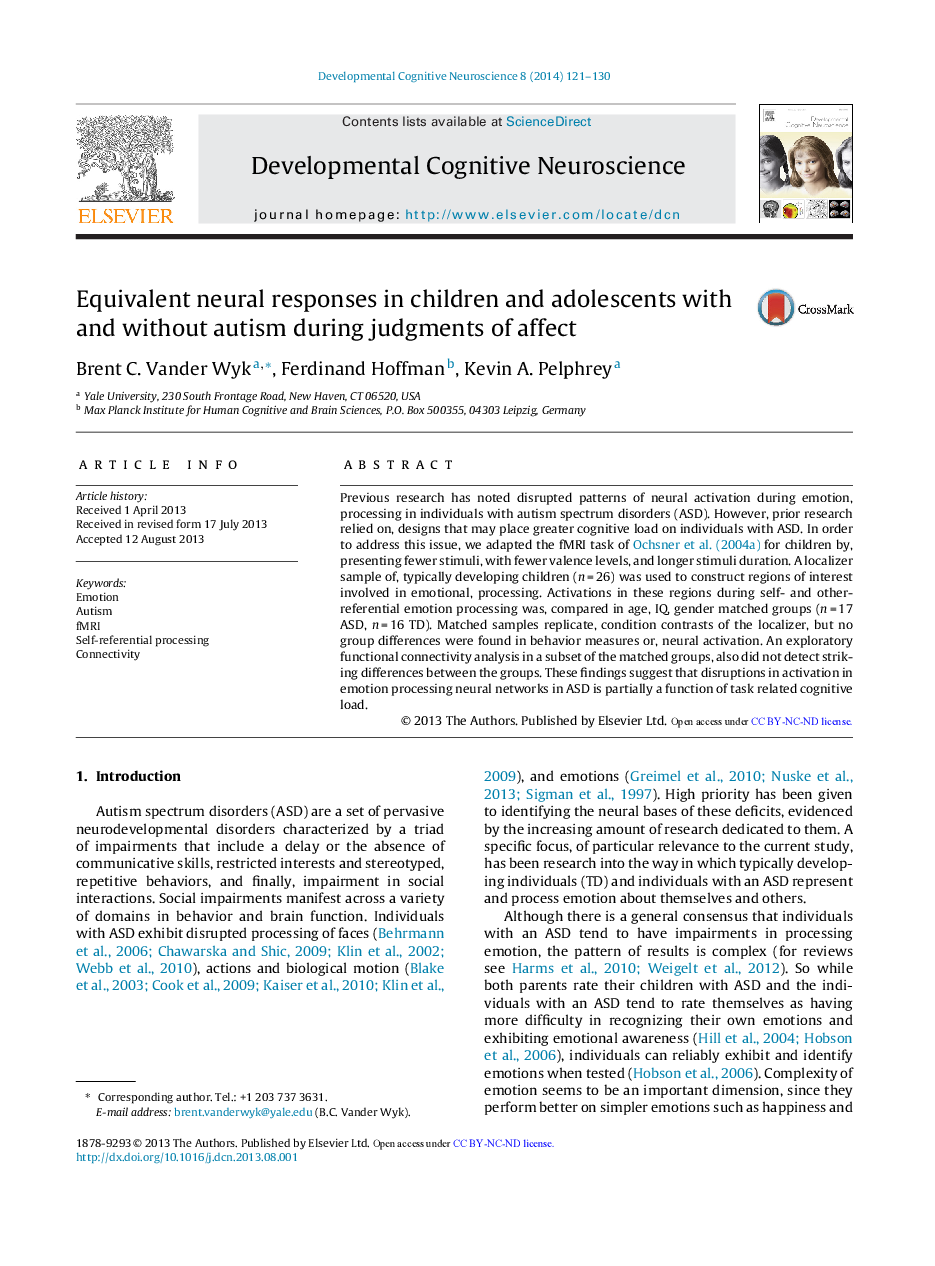| Article ID | Journal | Published Year | Pages | File Type |
|---|---|---|---|---|
| 4316657 | Developmental Cognitive Neuroscience | 2014 | 10 Pages |
•Carefully matched control and ASD groups (IQ, age, gender).•fMRI study of self- and other-referential processing.•Equivalent neural activation in emotion processing regions in ASD relative to controls.
Previous research has noted disrupted patterns of neural activation during emotion, processing in individuals with autism spectrum disorders (ASD). However, prior research relied on, designs that may place greater cognitive load on individuals with ASD. In order to address this issue, we adapted the fMRI task of Ochsner et al. (2004a) for children by, presenting fewer stimuli, with fewer valence levels, and longer stimuli duration. A localizer sample of, typically developing children (n = 26) was used to construct regions of interest involved in emotional, processing. Activations in these regions during self- and other-referential emotion processing was, compared in age, IQ, gender matched groups (n = 17 ASD, n = 16 TD). Matched samples replicate, condition contrasts of the localizer, but no group differences were found in behavior measures or, neural activation. An exploratory functional connectivity analysis in a subset of the matched groups, also did not detect striking differences between the groups. These findings suggest that disruptions in activation in emotion processing neural networks in ASD is partially a function of task related cognitive load.
